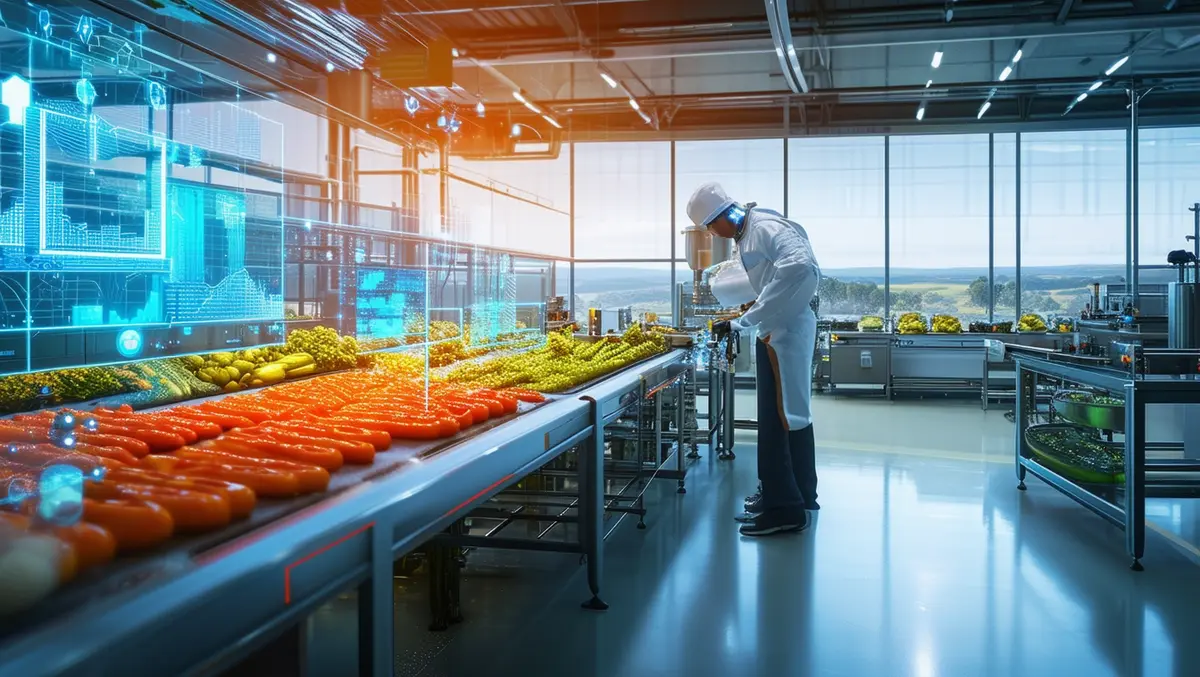
Unlocking AI: Strategic moves to revolutionise the food sector
Technology already plays a central role in the journey our food makes from source to shelf, from robots deployed on farms to automation on production lines or online deliveries to bring products into our homes. As the AI transformation gathers pace, we can expect AI tools to become established in the sector.
This is an exciting prospect. There are clear gains to be made, whether around supply chain management and monitoring, robotics on farms or using AI to monitor food quality and reduce waste. These gains could include enhancing processes and driving efficiencies, productivity gains, and smoother procurement through global supply chains, that all makes perfect sense. Already, many large Australian food businesses are using AI and speaking about it proactively. Examples include Treasury Wine Estate, who is using climate data and an AI algorithm to optimise agricultural productivity and improving food safety, and Costa Group, who is implementing AI through its Sensing+ system, using in-crop sensors and data analytics to optimise agricultural practices. For many household name businesses, AI will be a core part of their strategic thinking and business planning.
Yet large businesses account for only a part of the food supply chain. There are small farm-owners, independent producers and many players across a complex global supply chain involving countless stakeholders. So even if major brands are using AI in a very considered and developed way, there's potentially a whole swathe of organisations that may be uncertain about where to start. Many of these may be low margin by nature, and nervous of large investments without successful pilots. In order to help those businesses leverage AI as a force for good to drive business productivity and growth, a few key areas will be critical. These include long-term thinking, building trust and, communication and training.
Looking at the big picture with AI is fundamental. Whatever the size of business, strategic planning and long-term thinking will be vital – knowing what specific tools can add value, where to spend money, or having the teams in place to leverage AI. Yet according to BSI's research, only 46% of businesses in the sector have an AI strategy and less than a quarter say the tool has board level focus (23%). Digging behind the data, only half of food businesses are currently increasing investment in AI, and more than a third (36%) say their business is not currently investing enough in AI tools. Considering that 74% of those in the sector say that if businesses do not invest in AI tools, they will be at a competitive disadvantage, there is clear work to be done.
Another priority for businesses in the sector is prioritising measures designed to build trust. On this, the data presents a more optimistic picture. For example, 74% said they were aware of their business providing information to customers about how AI is being used in the business or future plans – higher than the global average of 69%. This is perhaps unsurprising – transparency and trust are integral ingredients for success in the sector because customers want to know about the provenance of their food, its journey from source to shelf, and to be confident in the safety of what they are consuming. For those businesses in the food sector leading the way on proactive steps to use AI to enhance productivity and efficiency, transparency and trust will be key watchwords.
At the same time, the sector has historically involved many manual roles that could be automated via AI and robotics. If AI is to be deployed effectively, food businesses will need to bring employees on the journey too. Many of them may see AI as a threat to their jobs or at least something they feel unprepared for. Yet already in the sector, there are jobs, for example, around sustainability, that didn't exist 10 years ago. AI could be an opportunity accelerator, creating new roles and more exciting jobs.
But communicating the opportunity of AI for individuals and the industry as a whole, and the business' strategy for making it a success is absolutely pivotal. Equally, it's about upskilling people to be part of the success story. At present, only 39% of sector leaders surveyed said their business had a learning and development programme to ensure successful delivery of AI training, yet 88% said businesses have the responsibility to train teams to utilise AI tools in order to protect jobs.
The prospect of using pioneering technology to enhance productivity, deliver food sustainably and safely, and improve workforce well-being, is an exciting one for the food sector. On the horizon, we have the prospect of supply chains being less vulnerable to disruption, a reduction in food loss and waste, and a way to mitigate the impact of crop cultivation on the environment. AI cannot solve every challenge, but it is undoubtedly a huge opportunity for the food sector.
What's positive is that enthusiasm is growing amongst business leaders - 79% in the sector say they have greater trust in AI now than a year ago – suggesting the food and farming sector has an exciting opportunity to leverage the power of AI for good.
Ultimately, success is not guaranteed. It requires strategic planning and long-term thinking to integrate it successfully and then steps to build trust amongst customers and employees. The prize is a more efficient and productive food sector that meets customer needs safely and sustainably.
Todd Redwood ran a workshop on Society 5.0: Building Trust in AI as a Force for Good during the Advanced Food Manufacturing session at the AIFST24 Convention in Sydney Australia, 6 August.